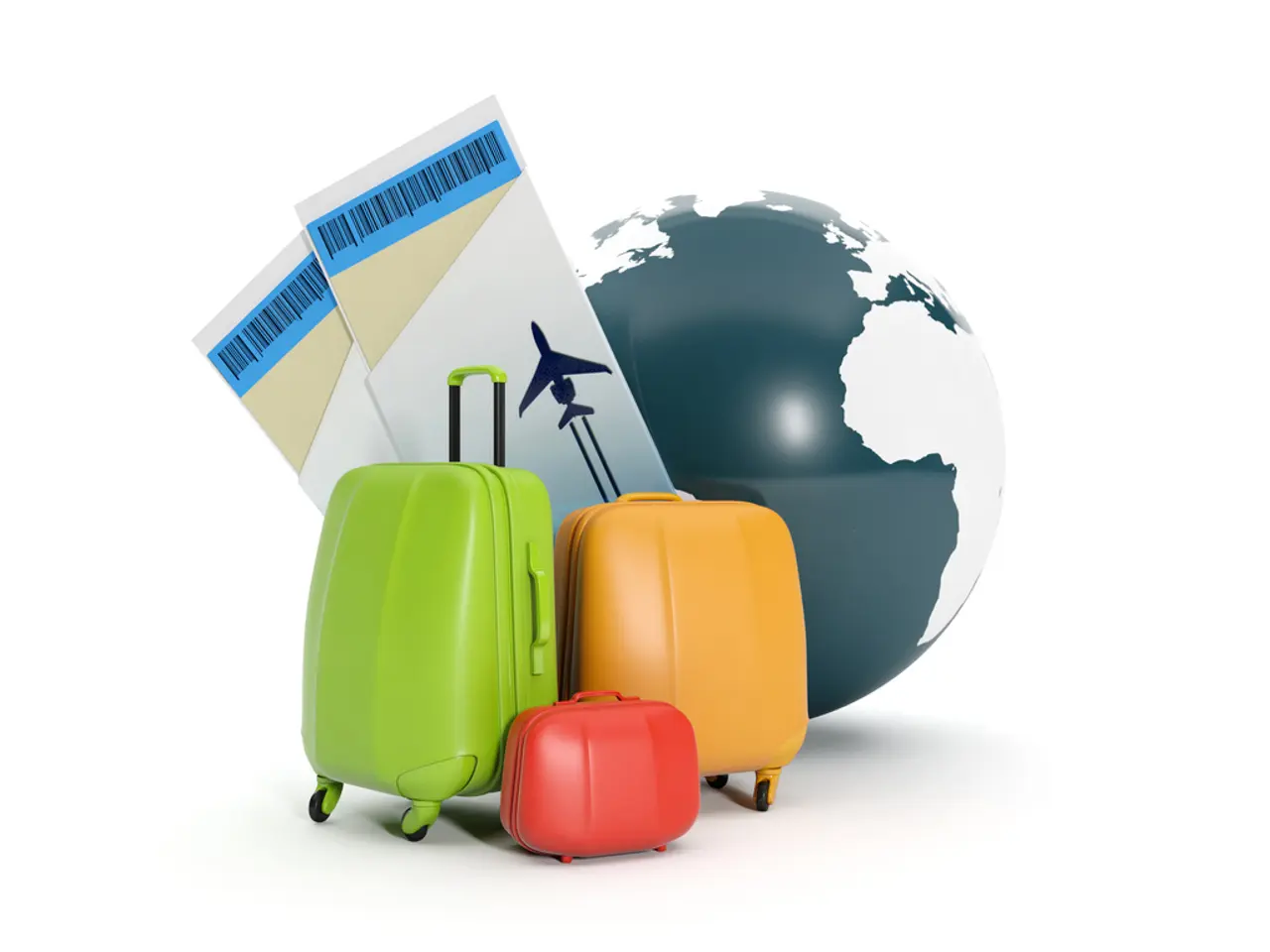Gaining Understanding of Customer Desires - Insights from Airline Ticket Reviews
In the ever-evolving landscape of air travel, understanding customer feedback is crucial for airlines to improve their services and meet the evolving needs of passengers. Here's a comprehensive analysis of the latest trends, based on extensive research and data.
**Key Factors Influencing Passenger Decisions**
When booking a trip, competitive cost, ease of booking, favourable arrival and departure times, comfort, and hygiene standards post-COVID-19 are significant factors. 66.7% of passengers choose airlines for cheaper fares, 76.7% for good scheduling, and 40% prioritize hygiene. Other considerations include broadband internet availability (53.3%) and environmentally friendly practices (70% willing to pay more for eco-friendly airlines).
**Improving Transparency and User Experience**
Transparency in fees and clear pricing is key to building trust and reducing confusion during booking. Streamlining booking interfaces, providing fast and convenient payment options, and offering clear fare options tailored to traveler preferences can significantly enhance user experience and conversion rates.
**Timely Communication During Delays or Cancellations**
Timely communication during delays or cancellations is vital as 43.3% of passengers report cancellations as common, and 33.3% struggle with refunds. Rapid updates help reduce customer anxiety and improve trust. Airlines can implement proactive notifications via mobile apps, SMS, chatbots, and social media for real-time updates.
**Preferences Vary by Demographics**
Preferences vary by demographics, especially among younger travelers who favour mobile booking, digital payments, and tech-enhanced experiences. Meeting these expectations is essential to capture and retain this valuable segment.
**Most Frequent Complaints and Solutions**
Most frequent complaints include flight cancellations, refund difficulties, and long queues at ticket counters. Airlines can address these by improving cancellation policies, simplifying refund processes, expanding self-service options, and accelerating check-in via automation or biometrics.
**Booking Trends**
56.7% of travelers book directly on airline websites for convenience, while mobile bookings are rising fast. Airlines can leverage this by optimizing mobile apps and websites and offering exclusive direct booking incentives.
**Segmenting Feedback by Traveler Demographics**
Segmenting feedback by traveler demographics (age, travel purpose, preferences) enables targeted marketing strategies, such as eco-friendly offerings for environmentally conscious flyers or premium services for business travelers.
**Strategies to Improve Customer Satisfaction**
Strategies to improve customer satisfaction across services include enhancing efficiency in check-in with biometric systems, upgrading in-flight meal quality based on feedback, providing responsive customer service via multiple channels, and ensuring broadband WiFi onboard as over 50% value connectivity.
**Streamlining Booking to Minimize Cart Abandonment**
Simplifying the booking interface, integrating contactless payment options, providing clear total pricing to avoid surprise fees, and offering flexible fare options that customers can customize can significantly reduce cart abandonment.
**Customizing Fare Options**
Customizing fare options can be done by offering tiered services, add-ons like seat selection, baggage, priority boarding, and environmentally friendly packages that customers are willing to pay more for. This customization meets diverse expectations and increases ancillary revenue.
**Improving Communication Channels**
Improving communication channels based on feedback includes enhancing mobile notifications, deploying AI chatbots for instant support, maintaining active social media responsiveness, and using multi-channel messaging to keep passengers informed in real-time.
**Technology Upgrades Guided by User Input**
Technology upgrades guided by user input should focus on biometric check-ins, contactless payments, robust mobile apps, seamless booking platforms, onboard WiFi, and data analytics for personalization. These upgrades increase satisfaction and can drive sales through better service and ease of use.
**Developing Loyalty Programs Aligned with Traveler Desires**
Developing loyalty programs aligned with traveler desires means integrating personalized rewards, eco-friendly incentives, priority services, and exclusive offers. Programs should reflect current preferences such as digitally accessible points systems and benefits appealing to frequent flyers and younger travelers.
**Examples of Successful Improvements**
Examples of successful improvements include airlines adopting biometric check-ins and contactless payments post-COVID to speed processes and reduce contact, implementing enhanced mobile booking apps with real-time notifications, and revamping loyalty programs to offer sustainable travel rewards. These initiatives, driven by feedback and tech trends, have seen improved customer satisfaction and booking rates.
This comprehensive synthesis integrates survey data, industry trends, and technology insights to guide airlines in leveraging customer feedback to enhance the air travel experience, increase satisfaction, and boost revenue.
In the context of air travel, some passengers consider their lifestyle and travel experiences when choosing an airline. For instance, 40% of passengers prioritize hygiene, and 70% are willing to pay more for eco-friendly airlines, demonstrating the importance of environmental practices in their travel decisions. Additionally, as travel becomes increasingly digital, airlines can cater to this trend by focusing on enhancing their online booking platforms, offering customized fare options, and implementing technology upgrades based on user input, thereby appealing to passengers' lifestyle and travel preferences.




